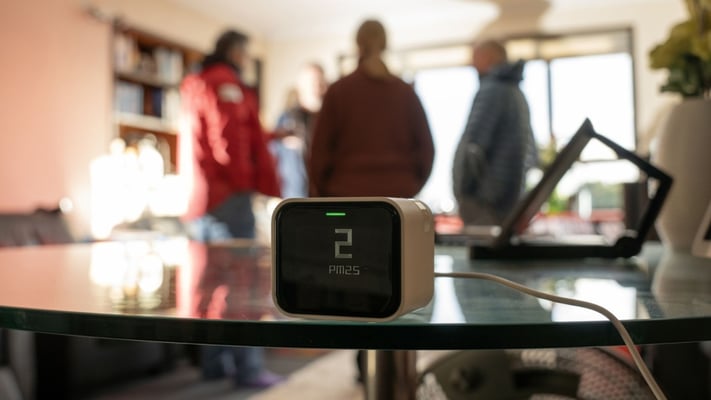Poor Indoor Air Quality Costs NZ $1 Billion Annually, Experts Warn

Poor indoor air quality is costing New Zealand about $1 billion each year in healthcare expenses and lost productivity, according to researchers cited in a new RNZ report.
The Public Health Communication Centre (PHCC) released a briefing on Thursday, warning that air quality inside hospitals, schools, workplaces and homes poses a “major but invisible” health risk.
University of Otago associate professor Julie Bennett, a co-author of the briefing, told RNZ that indoor air quality is often neglected compared with food and water safety.
“We wouldn’t drink dirty water or eat unsafe food, but we rarely think about the air we breathe,” she said.
“Because we spend around 90 percent of our lives indoors, the quality of that air is critical to our health and wellbeing. Access to clean air should be treated as a basic human right, just like safe drinking water.”
According to the PHCC, poor air circulation contributes to asthma flare-ups, allergies, fatigue, and lower productivity. Bennett told RNZ that improving air quality in public buildings could save New Zealand up to $1 billion annually, citing international studies that show benefits such as higher student attendance and performance when ventilation systems are upgraded.
Currently, New Zealand has no enforceable standards for indoor air quality, unlike the United States, Canada and France, which regulate pollutants and ventilation rates. Existing building codes focus on energy efficiency, leaving filtration decisions largely to individuals or businesses.
The PHCC has urged the government to establish a national agency to create standards and coordinate a long-term strategy for healthier indoor environments.
The issue will be raised later this month at the Healthy Indoor Air: A Global Call to Action event at the 2025 United Nations General Assembly in New York, RNZ reported.
Poor indoor air quality is costing New Zealand about $1 billion each year in healthcare expenses and lost productivity, according to researchers cited in a newRNZreport.
The Public Health Communication Centre (PHCC) released a briefing on Thursday, warning that air quality inside hospitals,...
Poor indoor air quality is costing New Zealand about $1 billion each year in healthcare expenses and lost productivity, according to researchers cited in a new RNZ report.
The Public Health Communication Centre (PHCC) released a briefing on Thursday, warning that air quality inside hospitals, schools, workplaces and homes poses a “major but invisible” health risk.
University of Otago associate professor Julie Bennett, a co-author of the briefing, told RNZ that indoor air quality is often neglected compared with food and water safety.
“We wouldn’t drink dirty water or eat unsafe food, but we rarely think about the air we breathe,” she said.
“Because we spend around 90 percent of our lives indoors, the quality of that air is critical to our health and wellbeing. Access to clean air should be treated as a basic human right, just like safe drinking water.”
According to the PHCC, poor air circulation contributes to asthma flare-ups, allergies, fatigue, and lower productivity. Bennett told RNZ that improving air quality in public buildings could save New Zealand up to $1 billion annually, citing international studies that show benefits such as higher student attendance and performance when ventilation systems are upgraded.
Currently, New Zealand has no enforceable standards for indoor air quality, unlike the United States, Canada and France, which regulate pollutants and ventilation rates. Existing building codes focus on energy efficiency, leaving filtration decisions largely to individuals or businesses.
The PHCC has urged the government to establish a national agency to create standards and coordinate a long-term strategy for healthier indoor environments.
The issue will be raised later this month at the Healthy Indoor Air: A Global Call to Action event at the 2025 United Nations General Assembly in New York, RNZ reported.










Leave a Comment